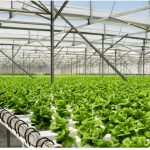Global Hydrogen Fueling Station Market
As stated in our extensive report; the Global Hydrogen Fueling Station Market accounted for USD 315.9 Million in the year 2022 and is projected to reach a value of USD 903.6 Million by 2030.
The Hydrogen Fueling Station market is primarily driven by the fact that, in contrast to conventional power generation techniques, which are hazardous to the environment, fuel cells do not emit toxic gases or pollution. The dwindling supply of natural resources, carbon emissions, and rising costs of fossil fuels are also encouraging the development of alternative means of generating power and getting around. Because of this, continual efforts have been undertaken to reduce carbon emissions and spend less on petrol by both the public and private sectors. Government rules that are strict on CO2 and SO2 emissions are predicted to boost the growth of the hydrogen fueling station market around the world.
Click To Get a Free Sample On the Research Study

Factors Influencing Global Hydrogen Fueling Station Market Growth
The growth of the global Hydrogen Fueling Station market can be attributable to the following:
- The demand for hydrogen fuelling stations may be impacted by the accessibility of hydrogen fuel cell automobiles. The need for hydrogen fuelling stations will probably grow as more automakers create and market hydrogen fuel cell vehicles.
- Government incentives and policies can have a significant impact on the demand for hydrogen filling stations. The demand for hydrogen fueling stations may rise, for instance, if a government provides tax credits or other incentives for the purchase of hydrogen fuel cell vehicles.
- Growing apprehensions about the effects of conventional gasoline-powered automobiles on the environment may further spur demand for hydrogen fuelling stations. Since hydrogen fuel cell vehicles emit no emissions, they are a desirable alternative for customers who care about the environment.
- Advances in hydrogen fuel cell technology may also lead to a rise in demand for hydrogen fuelling stations. More people may decide to buy hydrogen fuel cell vehicles as the technology becomes more effective and affordable, which would then raise demand for hydrogen refuelling facilities.
The cost of constructing and running a hydrogen fuelling station may be passed on to customers. As a result, purchasers may find hydrogen fuel cell vehicles less alluring.
For the purpose of handling highly flammable hydrogen fuel, HRS facilities must be built with a variety of cryogenic and non-cryogenic components, which is expensive. As a result, the outlook for the hydrogen fueling station market may be hindered by the high capital expenditures associated with starting new projects and the challenging administration of bulk capacity stations handling and delivering a big amount of H2.
Asia Pacific Region to Take Over the Market
Asia Pacific is anticipated to account for the majority of sales on the global market for Hydrogen Fueling Station. Many well-known players in the Hydrogen Fueling Station business are based in this area. Local companies are introducing tailored products to satisfy customer needs. In the Asia Pacific, there is a rising demand for zero-emission vehicles, particularly in nations like Japan and South Korea where air pollution is a significant issue. Due to the fact that hydrogen fuel cell vehicles are viewed as a vital technology to address this problem, there is a high demand for hydrogen fuelling infrastructure in the Asia Pacific.
Conclusion
In conclusion, the Hydrogen Fueling Station market is a relatively new one that is growing and has the potential to completely transform the transportation sector. The market is being propelled by rising interest in zero-emission cars, developments in hydrogen fuel cell technology, and infrastructural spending. The market’s expansion is, however, being constrained by a number of factors, such as high cost, a lack of infrastructure, safety concerns, and competition from other alternative fuels.
Despite these obstacles, it is anticipated that the market for hydrogen fueling stations will grow over the next few years as governments and private businesses continue to invest in the infrastructure and technology required to support it. The market for hydrogen filling stations has the potential to grow into an important player in the transportation sector, contributing to the reduction of carbon emissions and the improvement of air quality. This is due to future technological improvements and the increased availability of hydrogen fuel cell vehicles.
The well-known players of the Global Hydrogen Fueling Station Market include Air Liquide (France), Ballard Power Systems (Canada), FirstElement Fuel Inc. (U.S.), Air Products & Chemicals Inc. (U.S.), Hydrogenics (Canada), Praxair Inc. (U.S.), Nel Hydrogen (Norway), Linde Engineering (Ireland) and others.
![[Market Research Reports] – Research Google News Blog | VMR.Biz](https://www.vmr.biz/wp-content/uploads/2022/12/logo-removebg-preview.png)











